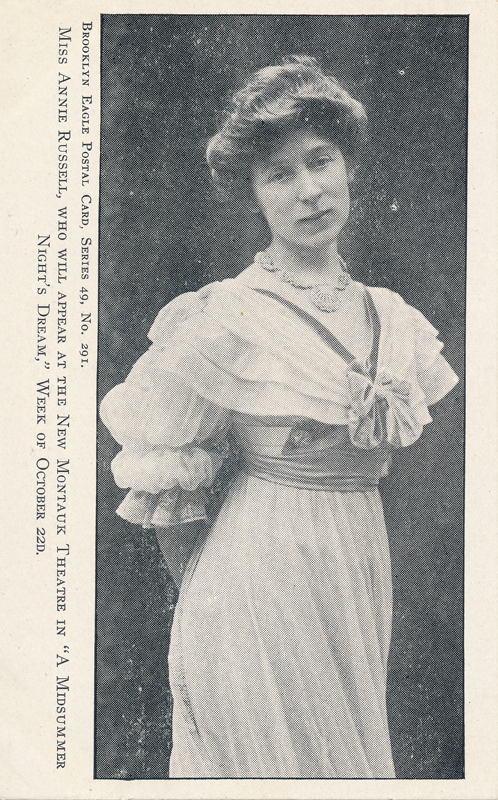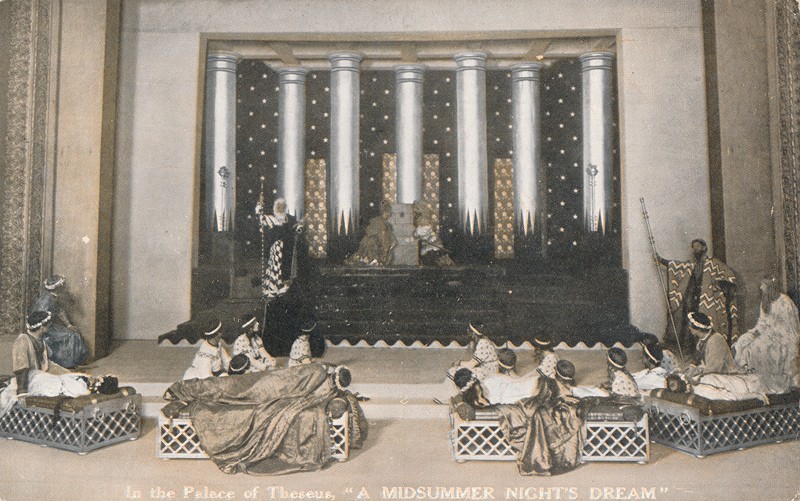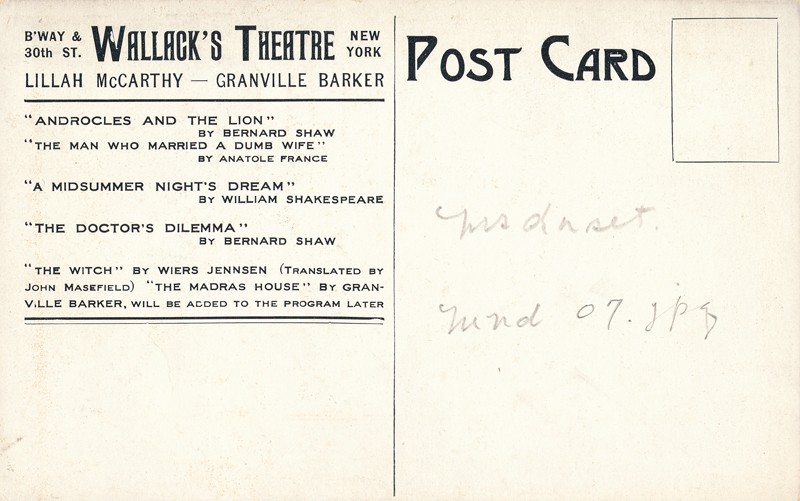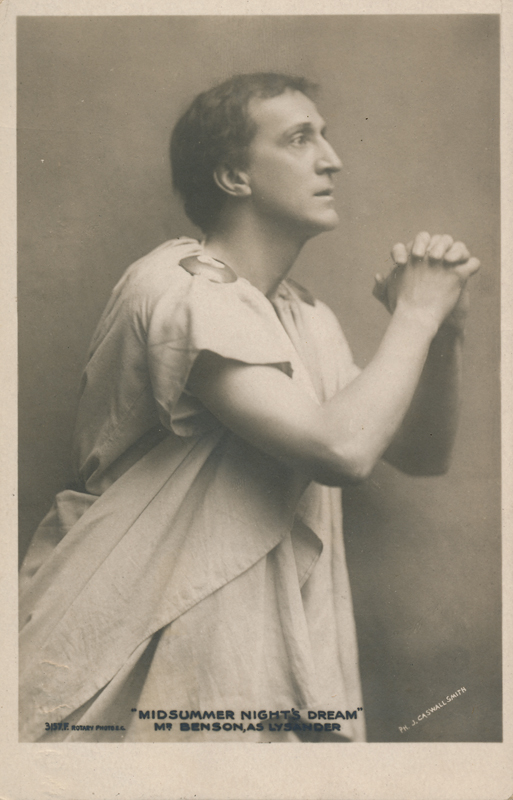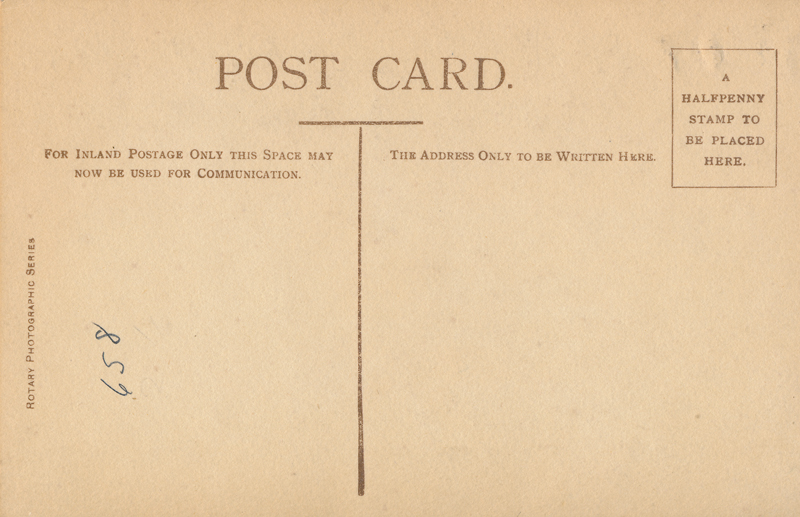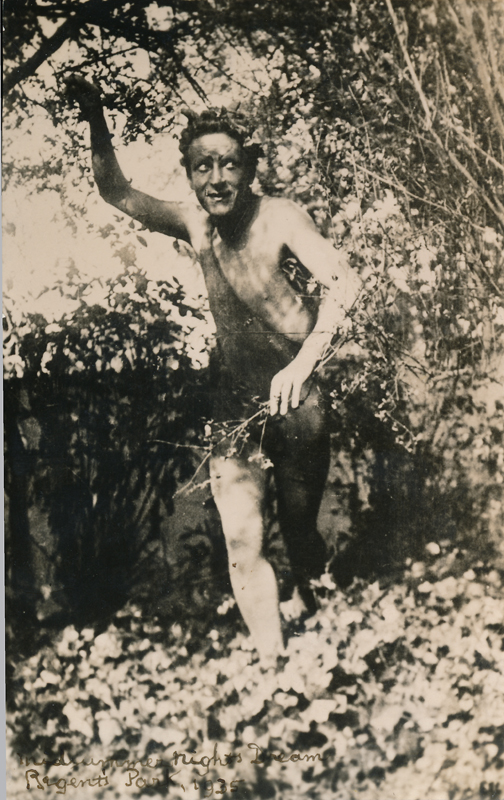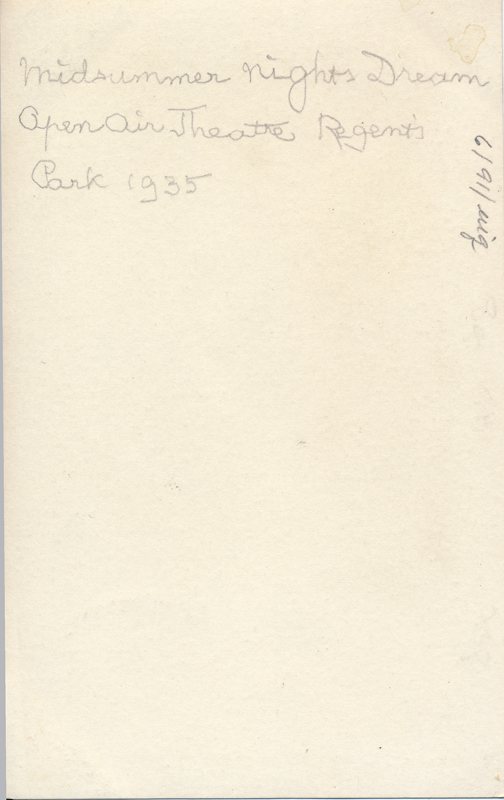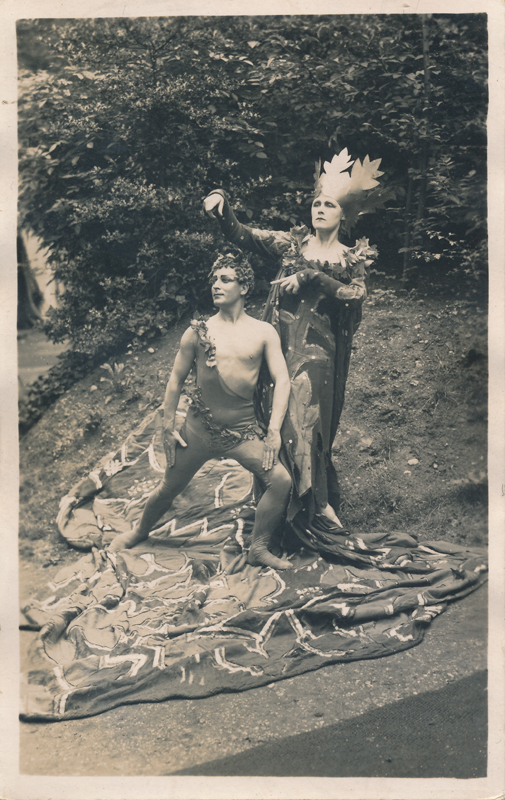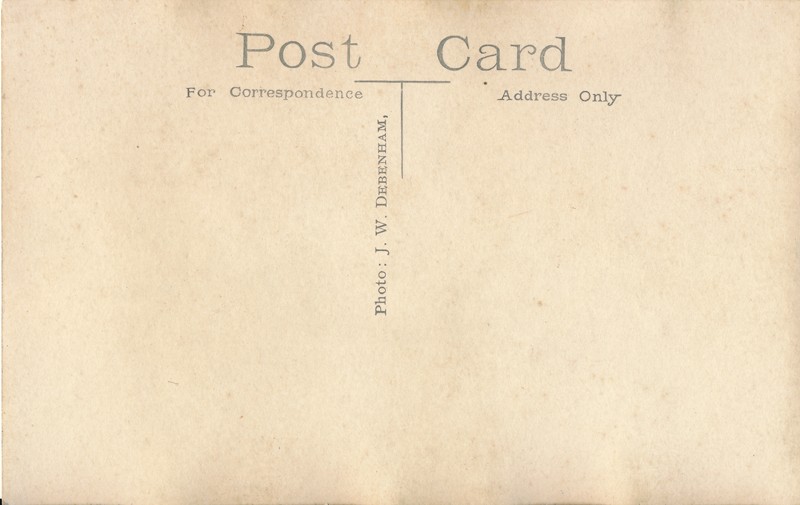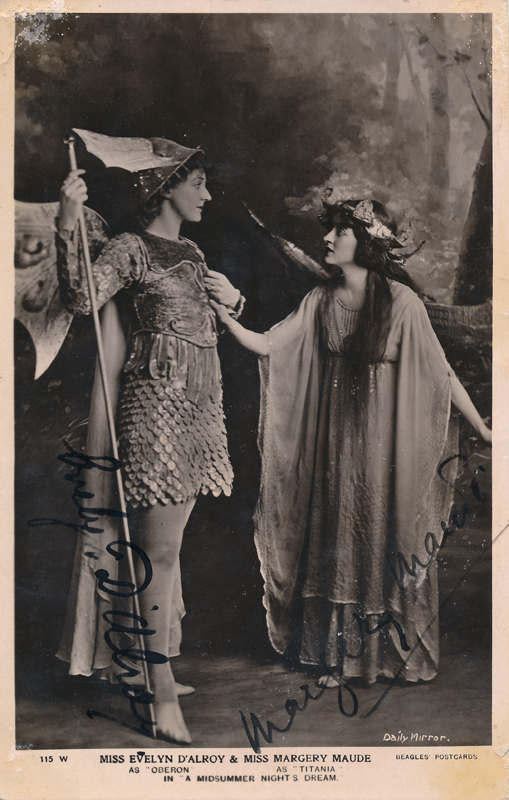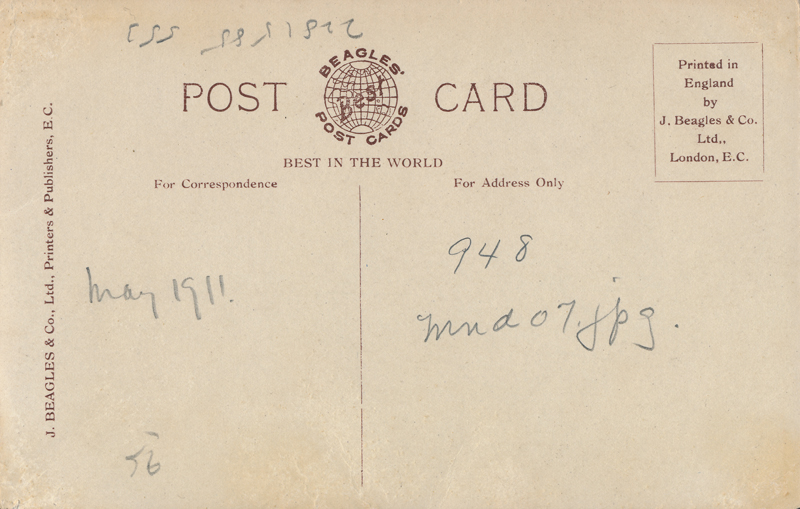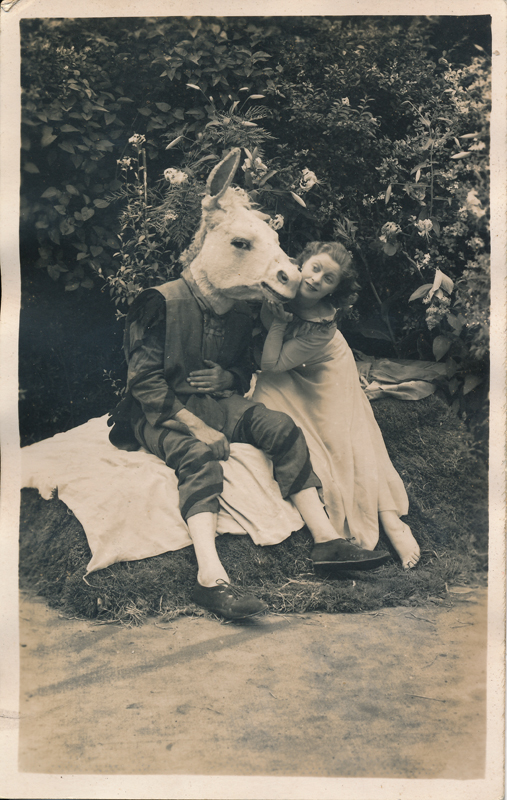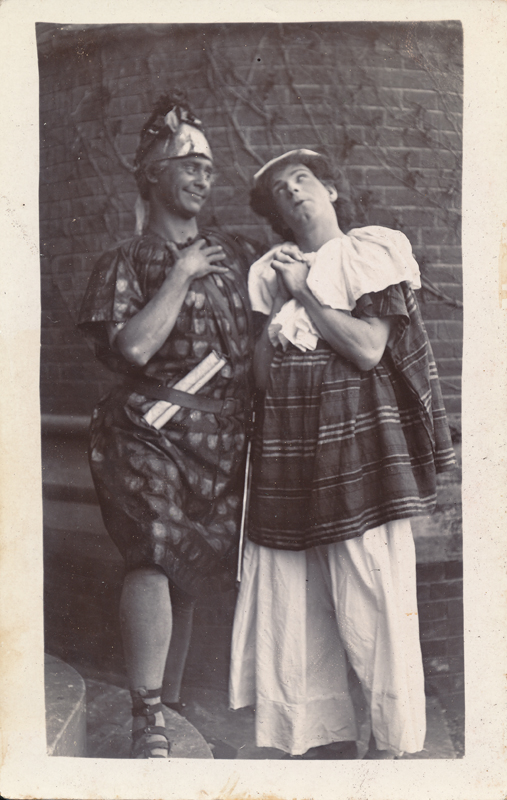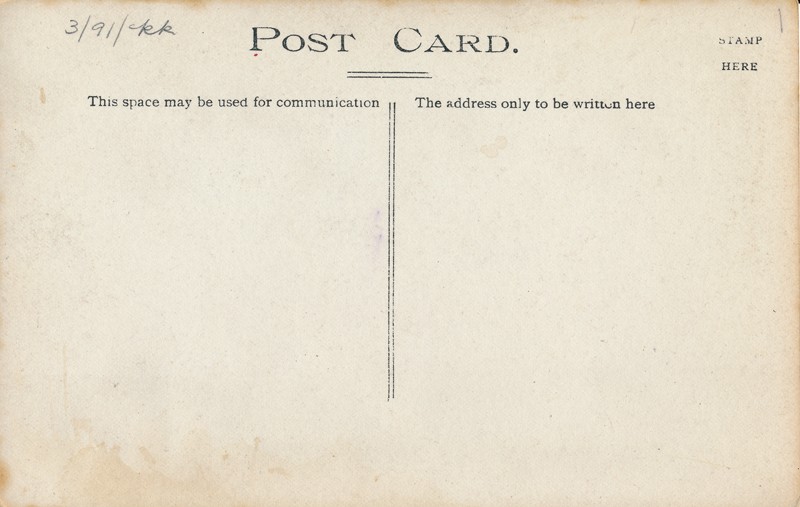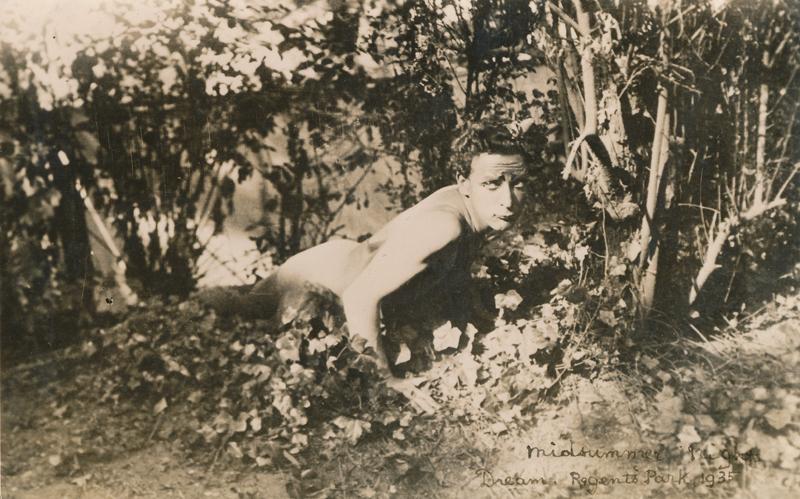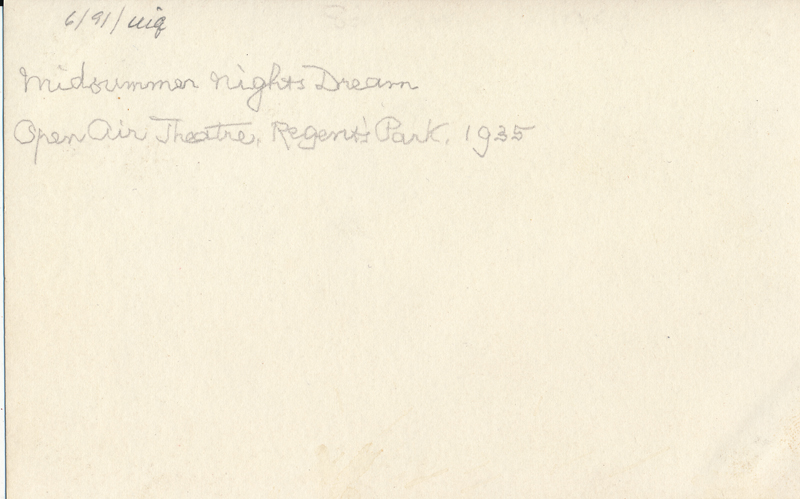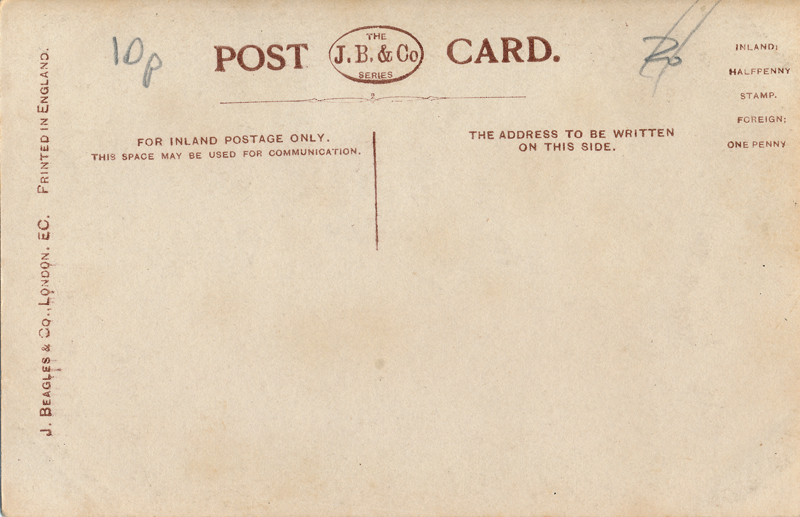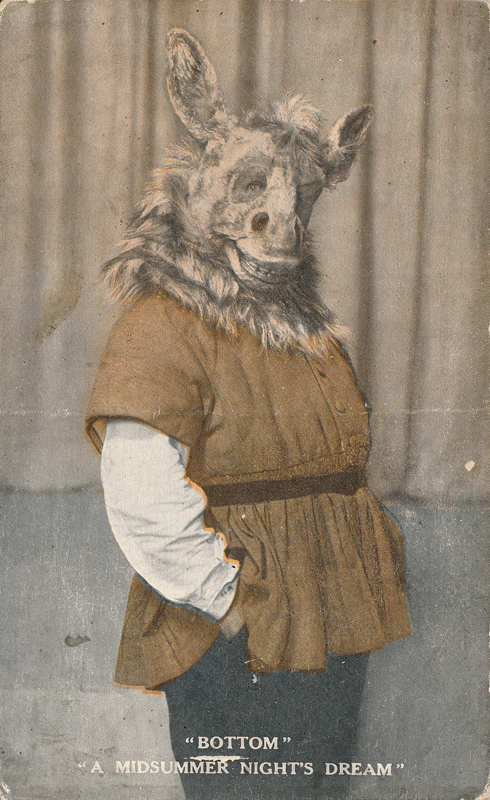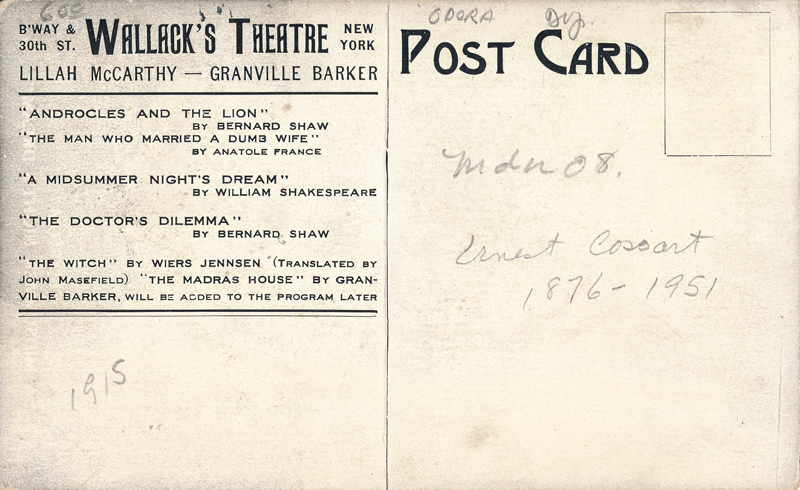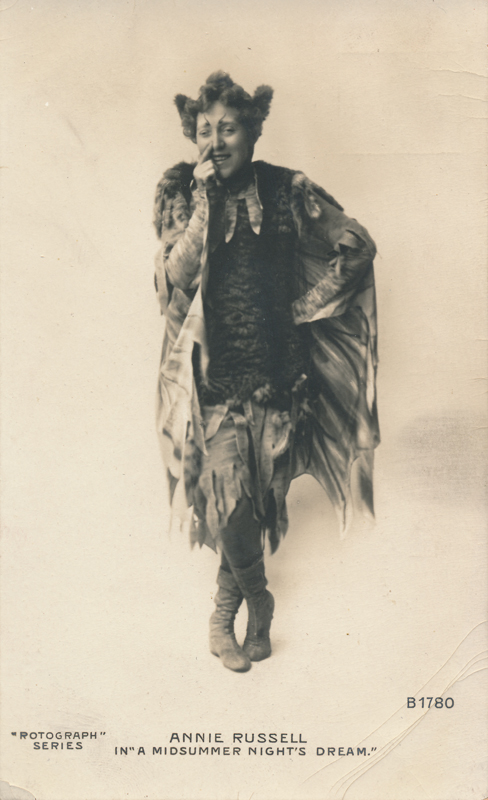
The course of true love never did run smooth (1.1)
In A Midsummer Night’s Dream, residents of Athens mix with fairies from a local forest, with comic results. In the city, Theseus, Duke of Athens, is to marry Hippolyta, queen of the Amazons. Bottom the weaver and his friends rehearse in the woods a play they hope to stage for the wedding celebrations.
Four young Athenians are in a romantic tangle. Lysander and Demetrius love Hermia; she loves Lysander and her friend Helena loves Demetrius. Hermia’s father, Egeus, commands Hermia to marry Demetrius, and Theseus supports the father’s right. All four young Athenians end up in the woods, where Robin Goodfellow, who serves the fairy king Oberon, puts flower juice on the eyes of Lysander, and then Demetrius, unintentionally causing both to love Helena. Oberon, who is quarreling with his wife, Titania, uses the flower juice on her eyes. She falls in love with Bottom, who now, thanks to Robin Goodfellow, wears an ass’s head.
As the lovers sleep, Robin Goodfellow restores Lysander’s love for Hermia, so that now each young woman is matched with the man she loves. Oberon disenchants Titania and removes Bottom’s ass’s head. The two young couples join the royal couple in getting married, and Bottom rejoins his friends to perform the play (reproduced with permission from Folger).
Postcards of A Midsummer Night’s Dream:
Productions of A Midsummer Night’s Dream:
A Midsummer Night’s Dream was performed at Stratford-upon-Avon eight times between 1888 and 1914; it was produced all told thirty-seven times between 1888 and 1978. In London, between 1895 and 1914, it was produced ten times. The play appeared eleven times in New York City between 1826 and 1996; however, it had only three New York productions between 1890 and 1914, the period covered in Shakespeare and the Players.
1895 Augustin Daly’s run of twenty-one performances at Daly’s Theatre (London) opened July 9. The players were George Clarke as Theseus, Frank Worthing as Demetrius, John Craig as Lysander, James Lewis as Bottom, Maxine Elliott as Hermia, Ada Rehan as Helena, Percy Haswell as Oberon, Sybil Carlyle as Titania, and Lillian Swain as Puck.
1900 Beerbohm Tree‘s production of A Midsummer Night’s Dream ran for 153 performances (January 10-May 26) at Her Majesty’s Theatre (London); Tree played Bottom and his wife played Titania. Other players in his company were William Mollison as Theseus, Dorothea Baird as Helena, Gerald Lawrence as Demetrius, Sarah Brooke as Hermia, Lewis Waller as Lysander, Julia Neilson as Oberon, and Louie Ferrar as Puck (Wearing, I: 2).
Frank Benson‘s company gave seven performances of A Midsummer Night’s Dream at the Lyceum Theatre (London) in February; Benson played Lysander and his wife Constance Benson played Titania. Others in the cast were Lily Brayton as Helena, Ada Ferrar as Hermia, H. R. Hignett as Demetrius, Kitty Loftus as Puck, and Frank Rodney as Oberon. The other plays were Henry V, Hamlet, Twelfth Night, and Antony and Cleopatra. An interesting note is that a young Isadora Duncan played one of the fairies in A Midsummer Night’s Dream (Loney, I: 3).
1905 On April 4, Henry Irving opened in Otho Stuart’s revival of Hamlet at the Adelphi Theatre, London. On July 4, Frank Benson moved into the Adelphi for The Comedy of Errors; Ortho Stuart then returned to the Adelphi with a production of A Midsummer Night’s Dream (Loney, I: 27).
1908 On April 20, Frank Benson opened the Stratford-upon-Avon Shakespeare Festival with Much Ado About Nothing; the company also performed A Midsummer Night’s Dream during this season. A notable event at the Festival was a performance of the William Poel production of Measure for Measure. Annie Horniman’s company had come down from Manchester especially for Poel’s “authentic” presentation of the play in what was understood then to be the conventions of the Elizabethan theatre (Loney, I: 44).
1910 On January 17, Ben Greet’s repertory of plays opened at the Garden Theatre, New York City, with, among other classics, these Shakespeare plays: Macbeth, Julius Caesar, The Tempest, A Midsummer Night’s Dream, and The Merchant of Venice (Loney, I: 53).
1911 On April 17, the annual Stratford Shakespeare Festival opened with The Merry Wives of Windsor. This year Frank Benson also offered The Merchant of Venice, Twelfth Night, Much Ado About Nothing, Henry V, Julius Caesar, Macbeth, As You Like It, Romeo and Juliet, A Midsummer Night’s Dream, and Richard III (Loney, I: 158).
On April 17, Arthur Bourchier revived A Midsummer Night’s Dream at His Majesty’s Theatre, London; Bourchier played Bottom, with Gerald Lawrence as Theseus, Evelyn D’Alroy as Oberon, and Margery Maude as Titania (Loney, I: 158).
On July 22, Stratford’s second summer season began; this is the year that Baliol Holloway debuted with the Bensonians. The plays performed are A Midsummer Night’s Dream, Henry V, Richard II, The Merchant of Venice, Romeo and Juliet, As You Like It, The Taming of the Shrew, Hamlet, and The Tempest (Loney, I: 159).
1912 The annual Stratford-upon-Avon Shakespeare Festival opened this year on April 22 with The Merchant of Venice; Frank Benson’s company also performed Henry V, A Midsummer Night’s Dream, Hamlet, Romeo and Juliet, Coriolanus, The Taming of the Shrew, Julius Caesar, Twelfth Night, and Richard III (Loney, I: 63).
The third annual summer season of Shakespeare began on August 7 at Stratford. The Shakespeare plays performed by Frank Benson’s troupe included Othello, Henry V, Antony and Cleopatra, A Midsummer Night’s Dream, and The Merry Wives of Windsor (Loney, I: 64).
1914 Another annual Stratford Shakespeare Festival opened with A Midsummer Night’s Dream; Frank Benson’s company was still on tour in the United States, so Patrick Kirwan directed this year’s offerings: Much Ado About Nothing, The Comedy of Errors, Twelfth Night, Hamlet, As You Like It, and The Merchant of Venice (Loney, I: 72).
On October 5, the Old Vic Theatre, London, under the management of Lilian Baylis, mounted a production of The Taming of the Shrew. Additionally, the following plays were performed for the first time in 1914 at the Old Vic: Hamlet, The Merchant of Venice, The Tempest, The Merry Wives of Windsor, The Comedy of Errors, Twelfth Night, and A Midsummer Night’s Dream. By 1923, Baylis will have produced the entire Shakespeare canon of thirty-seven plays (Loney, I: 73).

